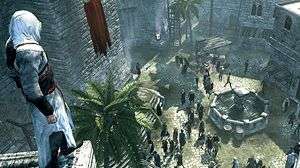Best of 2013: A Problem With Collectibles
by Jack
First Published: November 29, 2013
Voted For By: Markuz
Reason(s) for Vote:
I’d never had any issue with collectibles being in games, as it was never something that I’d bothered with. Not being one to go for the gamerscore, the need to collect a ridiculous number of items in order to pop a cheev was never a consideration for me… BUT… I do like to ‘max out’ games that I love, and the greatest problem I found with Borderlands was the ridiculous notion of collecting zombie brains, pink panties, pizzas, bobbleheads and offshore oil cans. By the time those cheevs popped and maxed out my game, I hated collecting. This article sums up everything that’s wrong with collectibles.
————————————————————————————————————————————————————–
 A collectible can be defined as ‘something seen worthy of being collected’. In a game, a collectible’s worth is usually in the measure of the reward it grants to the collector. The reward might be the pop of an achievement unlocking, or the granting of access to a previously hidden area in the game. Or it might simply be the conjuring of the feeling of some misplaced pride over your anal compulsion to collect every little thing. There’s nothing wrong with collectibles, they usually exist as a valuable tool for the designing of video games to slow down the player. They act as a kind of filler to pad things out and keep the player interacting for as long as possible, making them feel as though they’ve had their money’s worth.
A collectible can be defined as ‘something seen worthy of being collected’. In a game, a collectible’s worth is usually in the measure of the reward it grants to the collector. The reward might be the pop of an achievement unlocking, or the granting of access to a previously hidden area in the game. Or it might simply be the conjuring of the feeling of some misplaced pride over your anal compulsion to collect every little thing. There’s nothing wrong with collectibles, they usually exist as a valuable tool for the designing of video games to slow down the player. They act as a kind of filler to pad things out and keep the player interacting for as long as possible, making them feel as though they’ve had their money’s worth.
I’ve no problem with collectibles being used as an incentive to keep playing a game, but I do find a problem in them being used as an integral part of a game’s storytelling. When I play through a game’s single-player campaign for the first time, I do so with the intention of fully experiencing the story it has ready for me. Collectibles have nothing to do with this, or at least they shouldn’t. They’re not supposed to withhold significant portions of a game’s narrative until they’re at some point stumbled upon, making you stop everything you’d previously been doing to go and find the rest.
I’m not talking about the superficial collectibles, such as Tomb Raider’s hidden relics scattered all over the island, which trigger only a few words from Lara about their origins. I’m talking more about the sort of collectibles that exist in BioShock Infinite, such as the Voxophones. The Voxophones are one of a few different kinds of audio logs that can be sought out in the game that act as a medium for the storytelling. Without them the game’s story can feel a little disjointed. You can complete the game without them, and still just about know what sort of trouble was brewing in airborne Columbia during the early 1900s, but without the collectibles it does feel like you’ve missed out on a lot more.
 If I’m playing a game for the first time, I want to focus solely on immersing myself with the narrative. I want to neglect everything else until I return for the second playthrough, but collectibles can stop me from doing so. The problem is that I’m forced to change the way I play by awkwardly shuffling through each level I’m yet to grow familiar with. I’m left checking behind every door, looking in every dustbin, searching every Tom, Nook and Cranny to find that ever elusive Voxophone to ensure I’m not missing out on any part of the story. It’s a pain in the arse.
If I’m playing a game for the first time, I want to focus solely on immersing myself with the narrative. I want to neglect everything else until I return for the second playthrough, but collectibles can stop me from doing so. The problem is that I’m forced to change the way I play by awkwardly shuffling through each level I’m yet to grow familiar with. I’m left checking behind every door, looking in every dustbin, searching every Tom, Nook and Cranny to find that ever elusive Voxophone to ensure I’m not missing out on any part of the story. It’s a pain in the arse.
I have to ignore my latest objective to go hunt down the next hidden collectible. It becomes an obstacle to a player’s experience of the game, which is then subject to a compromise of “I’ve started so I’ll finish”, leading you down a stubborn and tedious path. However, this compromise is a rare occurrence that applies only to those story-collectibles, which just can’t be ignored. “I’ve started so I’ll finish” isn’t quite as relevant when you’re faced with 420 individual flags to collect in Assassin’s Creed or the 200 pigeons that need to be found and slain in Grand Theft Auto IV.
 There’s nothing wrong with being a perfectionist or an achievement hunter. Collectibles are fun because they appease to those very kinds of players. There is something wrong, however, with slowing a player down when they’re just trying to enjoy the story the game is telling. Significant parts of it should not be hidden away to be collected; left unfound without multiple playthroughs of the same story you had such high hopes for.
There’s nothing wrong with being a perfectionist or an achievement hunter. Collectibles are fun because they appease to those very kinds of players. There is something wrong, however, with slowing a player down when they’re just trying to enjoy the story the game is telling. Significant parts of it should not be hidden away to be collected; left unfound without multiple playthroughs of the same story you had such high hopes for.
Last five articles by Jack
- Best of 2013: A Problem With Collectibles
- Gaming Etiquette – The Unwritten Rules of Playing a Game With Others
- A Problem With Collectibles
- Dear Esther - Review
- One World, Every Player




















There are no comments, yet.
Why don’t you be the first? Come on, you know you want to!